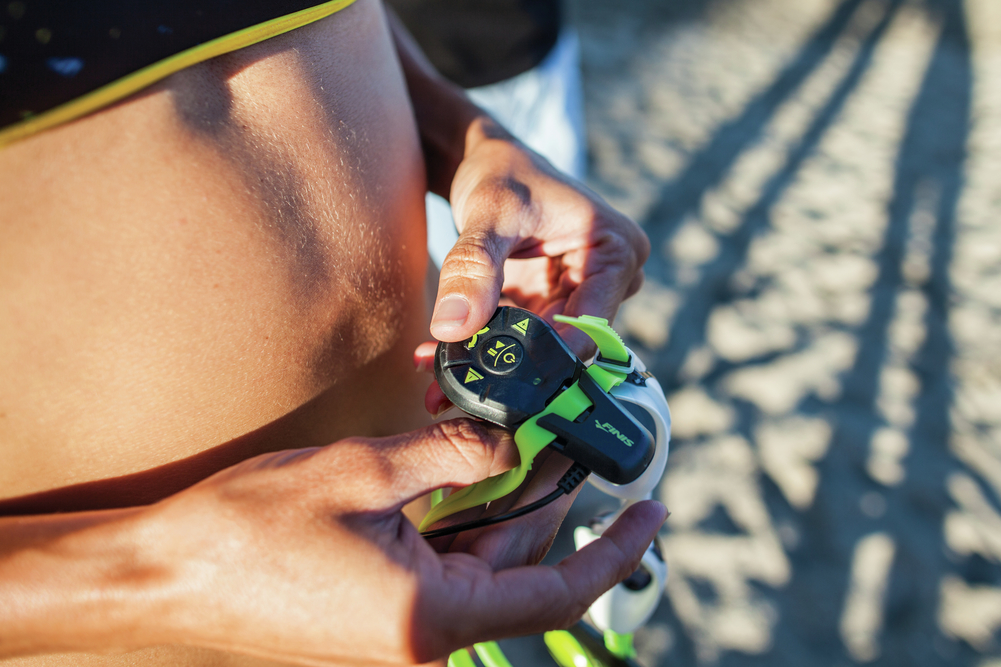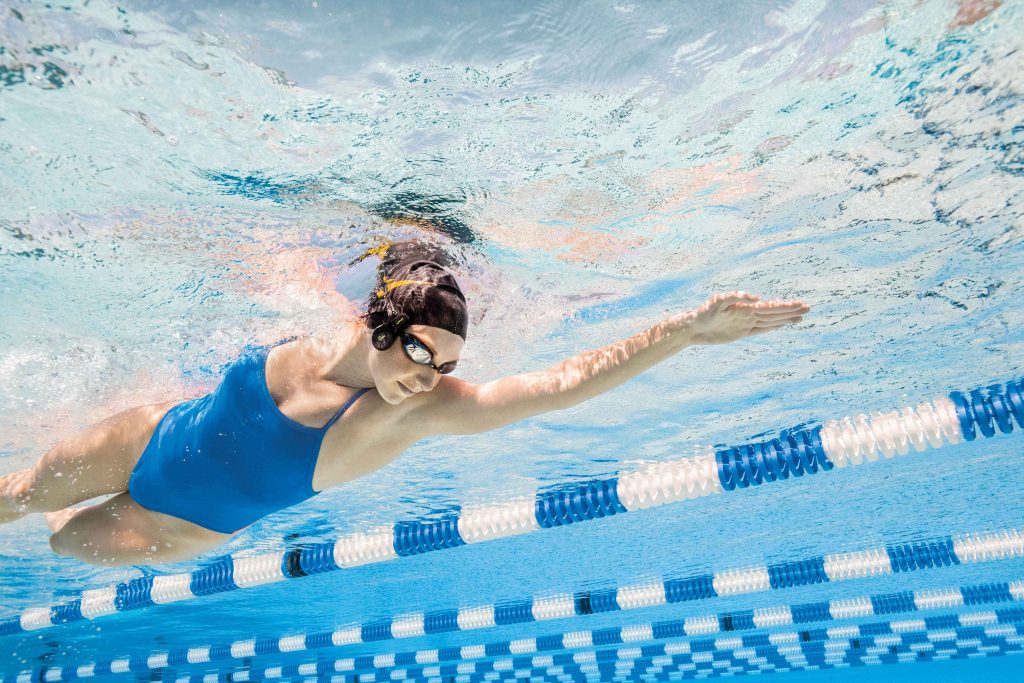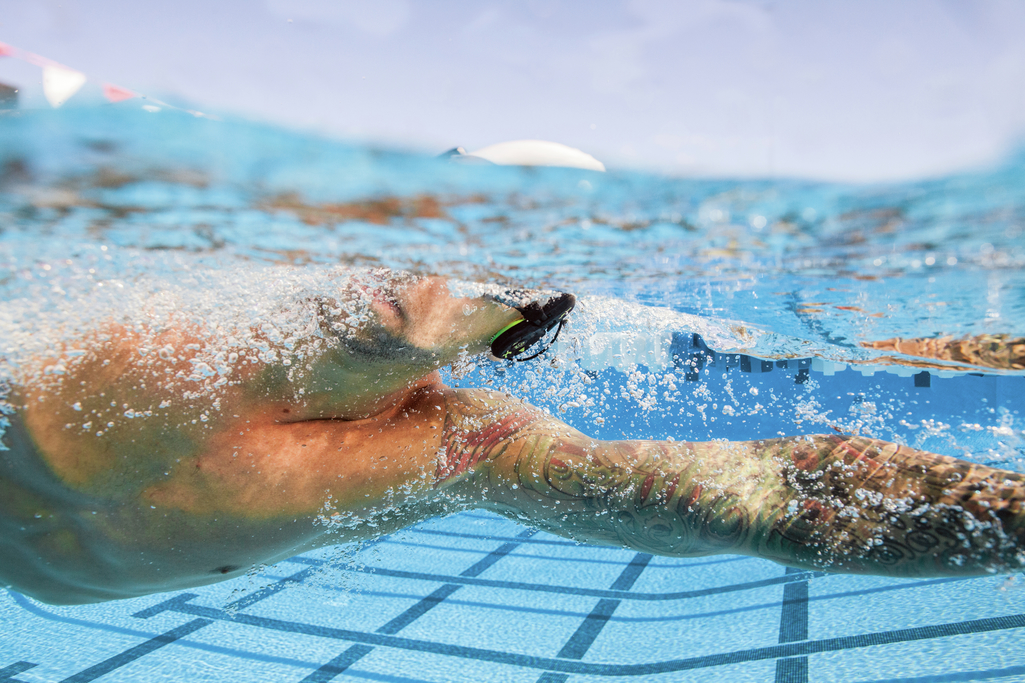Picking up Speed: Music’s Effect on Swimmers
Picking up Speed: Music’s Effect on Swimmers
November 26, 2018
Who can say a swim practice without music isn’t fun? Music has become the hype factor during several swimming competitions, greatly affecting swimmers during warmups and finals. The relationship between the swimmer and the headset during several Olympic Games continues to grow stronger.
Why does music have such a powerful effect on the athlete? What good does it do them?
Mixing it Up

In 2006, Peter Terry and Costas Karageorghis conducted a study on psychophysical effects of music in sport exercise, demonstrating the positive effects of music on the human brain. For example, if athletes work out with music in the background, they are more likely to keep up their exertion level for much longer than training without it. According to Terry and Karageorghis, differing beats create a rhythmic response in the mind: faster beats generate a more stimulative effect, while slower beats create a sedative effect.
Swimmers are typically looking to get that adrenaline rush going. A music suggestion to keep that hype is a Black-Eyed Peas classic, “I Gotta Feeling”. Get that feeling to sprint all the way through your next 200!
Effects of Moving with the Music!

Have you been moving with the music? As long as you’re moving quickly, no worries! Karageorghis and David-Lee Priest from Brunel University demonstrate that a close relationship exists between how an athlete synchronizes their movements to the music they listen to in their study on music in sport and exercise.
A swimmer looks to create an efficient and rhythmic turnover, moving through the water more smoothly and with more speed. The Billboard 100’s top rhythmic song to keep your tempo steady would be Travis $cott’s “Sicko Mode.” Make sure you keep that steady tempo up for your next grueling mile!
Turn Up the Volume!

Should your music be going as fast you’re moving? Karageorghis’ study, showcased on the PBS News Hour, demonstrated that if an athlete’s music beat is around 120 to 140 beats per minutes (about the same number of beats as their heart rate), there is a chance of improved stamina and overall athletic performance. Anything over 140 beats per minute would not likely yield performance benefits. Ultimately, for an elite swimmer with an average heart rate of around 33 to 50 heartbeats per minute, even a 120 beat-per-minute is quite high.
Chill Vibes
The crazy beats are not always for everyone. Swimmers jamming out to chill beats do exist! Does the music make them slower in the water than pumped up beats? No! In fact, according to a study conducted by Dave Elliott, music – whether it has a more relaxing tempo or more upbeat – creates the same effect for an athlete. Under what Elliott calls “competitive sport anxiety,” relaxing tempos, upbeat tempos, or even no music at all does not create a difference in the way one completes their motor tasks. You can find Elliott’s full article here: The effect of relaxing music for anxiety control on competitive sport anxiety.
Relaxing music also has been shown to help athletes recover more easily. Researchers J. Ling and W. Xudong, claim that music therapy can promote improved kidney function and has a positive impact on cardiovascular, muscular, and psychological fatigue. This music therapy creates a better emotional, spiritual and physiological environment for swimmers after a race.
But swimmers such as Michael Phelps and Simone Manuel still walk out on deck with their headsets blasting and hyping them up for their next medals.
Recent Articles
Dylan Carter
Chelsea Hodges
Lorenzo Zazzeri

Introducing the Stability Snorkel Jr
Share on Social Media


